You don’t need an accounting system to tell you how much you spend because you know how much you spend. FALSE!
If that were true then we as a country wouldn’t be spending more than we earn; and
business owners wouldn’t ask us something along the lines of “why if you made $40,000 profit last year, that $40,000 isn’t in your bank account?”.
When talking with business owners about their goals, I am constantly amazed how many of them do not know how much they need to live, or how much they need to earn to cover all their costs (let alone get ahead and get some extra for ‘fun’ or for ‘the future’).
When asked “How much do you need to live (i.e. cover costs at home)?”, could you answer that with some certainty (to the nearest $1,000)? Or are you just guessing? If I asked you “How much did you spend on eating out last month?”, do you know?
My experience tells me when people don’t know how much they spend on ‘X’, people generally underestimate what they spend and this is reflected in us as a country spending more than we earn. And when confronted with the actual amount you needed to live, or how much you spent on eating out last month, I tend to find people react with some surprise, never realising they spent quite that much.
If you under-guess what you spend, then you under-guess what you need to earn to cover your spending. That also means you end up using credit cards, overdrafts, hire purchases, and loans to cover the difference which results in you living in debt and never being able to build up savings for that home, that trip, or the retirement you may want (the debt trap).
It’s important to know how much you spend because then you can work out how much you need to earn to cover all your costs. Once you know how much you need to earn, you can do something about making sure you earn enough to meet your costs (or do something about your costs so you can meet them, or to save something).
To find out what you’re spending and where you are spending it, get an accounting system to tell you (if you don’t already have one). And don’t just do it for your business. Get a separate free/cheap cashbook to monitor your personal costs as well (you don’t want to clog up your business accounting with your personal transactions – which is why I recommend having a system for your personal account as well).
Using a system like Xero cashbook for your personal accounts (Xero will save you time by automating the recording of dates, who you paid and the amounts) will currently cost you $165.60 a year and can cover all your personal accounts. You should be able to easily recover the cost of a personal Xero cashbook subscription (and then some) by reviewing your costs … once you know what they really are.
It has been my experience that as you earn more than you spend more without even realising it. By reviewing your costs and asking yourself if you really need to spend that much on each group of costs, you should be able to find things you’re spending money on that don’t add anything to your life and that could be removed without making you ‘suffer’ or be ‘unhappy’. Once you’ve done that then you can go through what’s left and see if there are better/cheaper ways to get what you’re currently paying for so you can save even more money.
And you should use a similar approach in your business. Times are changing, and changing faster every day. There are better, quicker, smarter ways of doing things popping up daily. So if your suppliers aren’t keeping honest (and looking for better ways of doing what they do and passing that onto you), then keep them honest by shopping around – just do yourself a favour and don’t sacrifice the quality of service/product your customer values to save costs (bad idea).
Knowing your costs (as opposed to ‘guessing’) will mean you can make sure they don’t creep up without you noticing. It also means you can plan for your future by building some savings for whatever is important to you (rather than beg for more debt from the banks).
If you want help finding out where you spend your money (in business or in your personal life), or you want help reviewing your costs, then contact us to discuss how we can help you find more money
